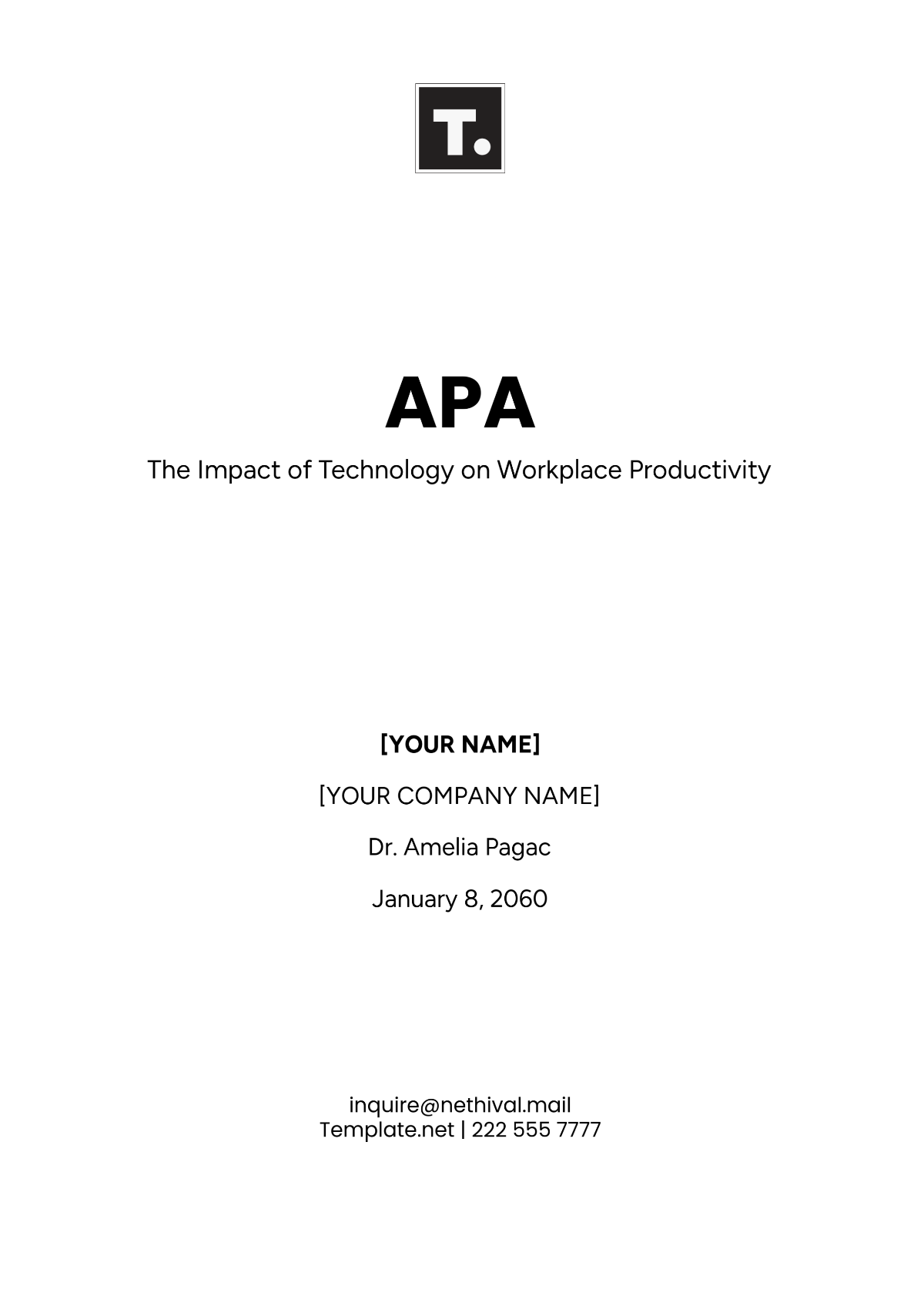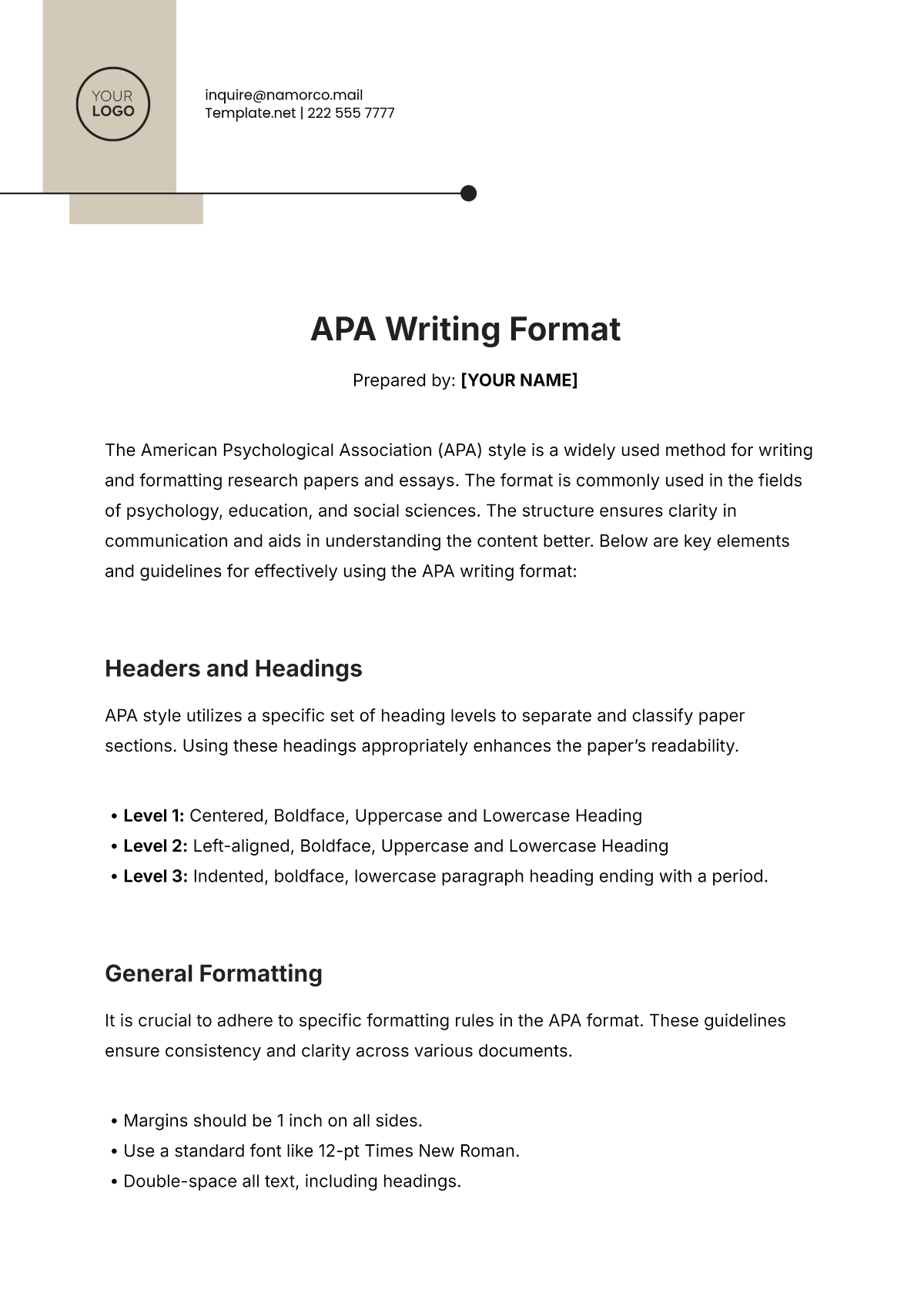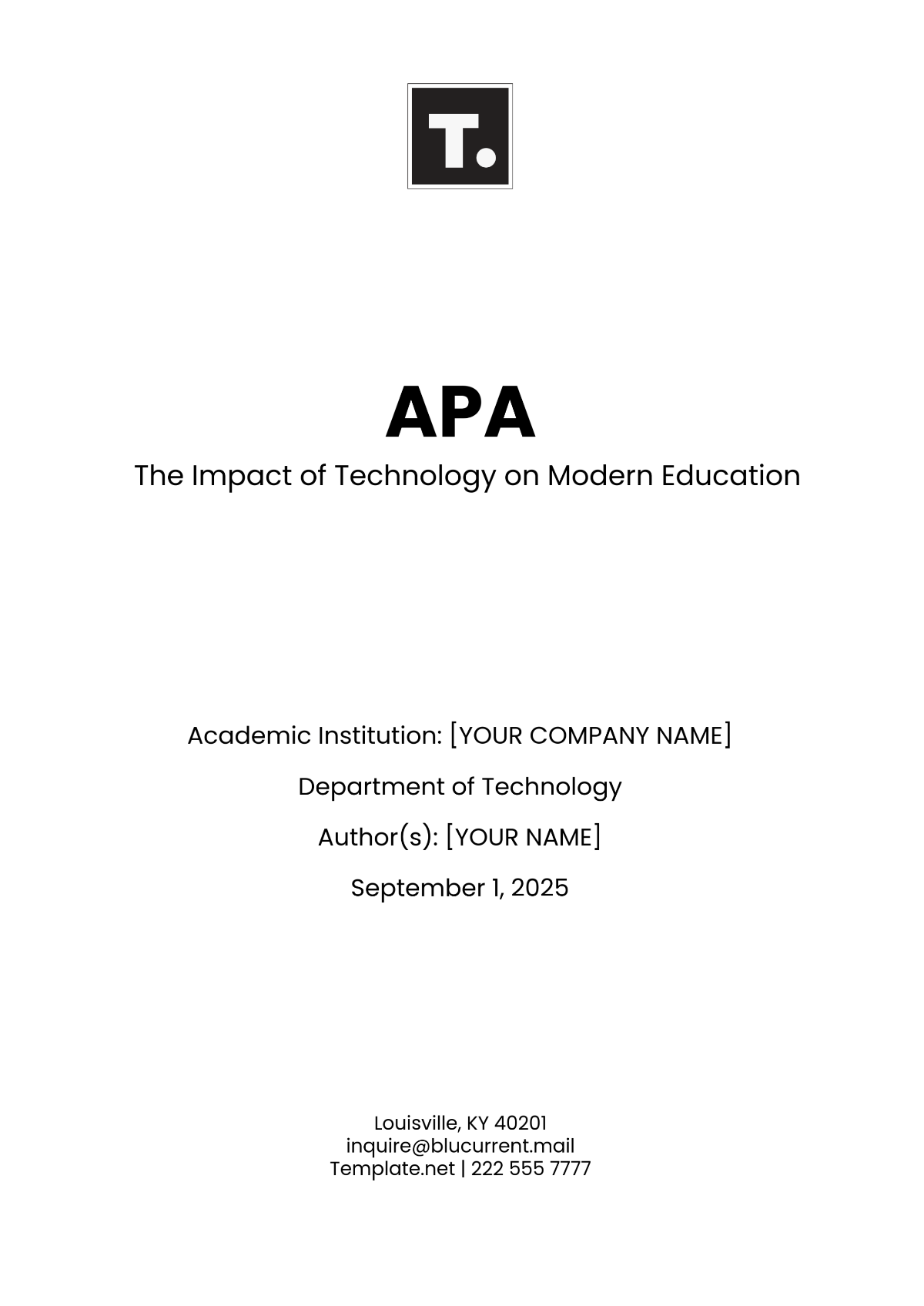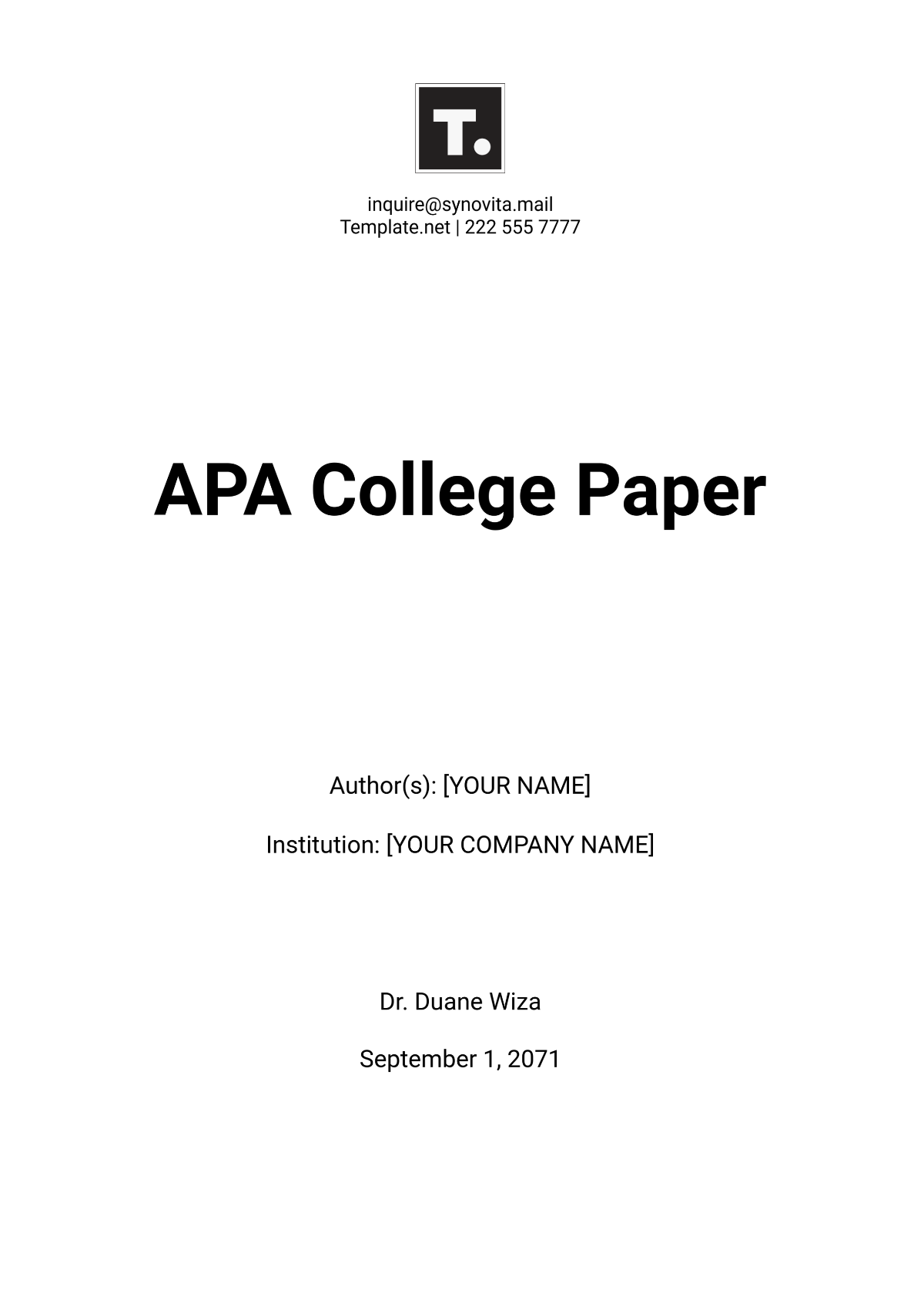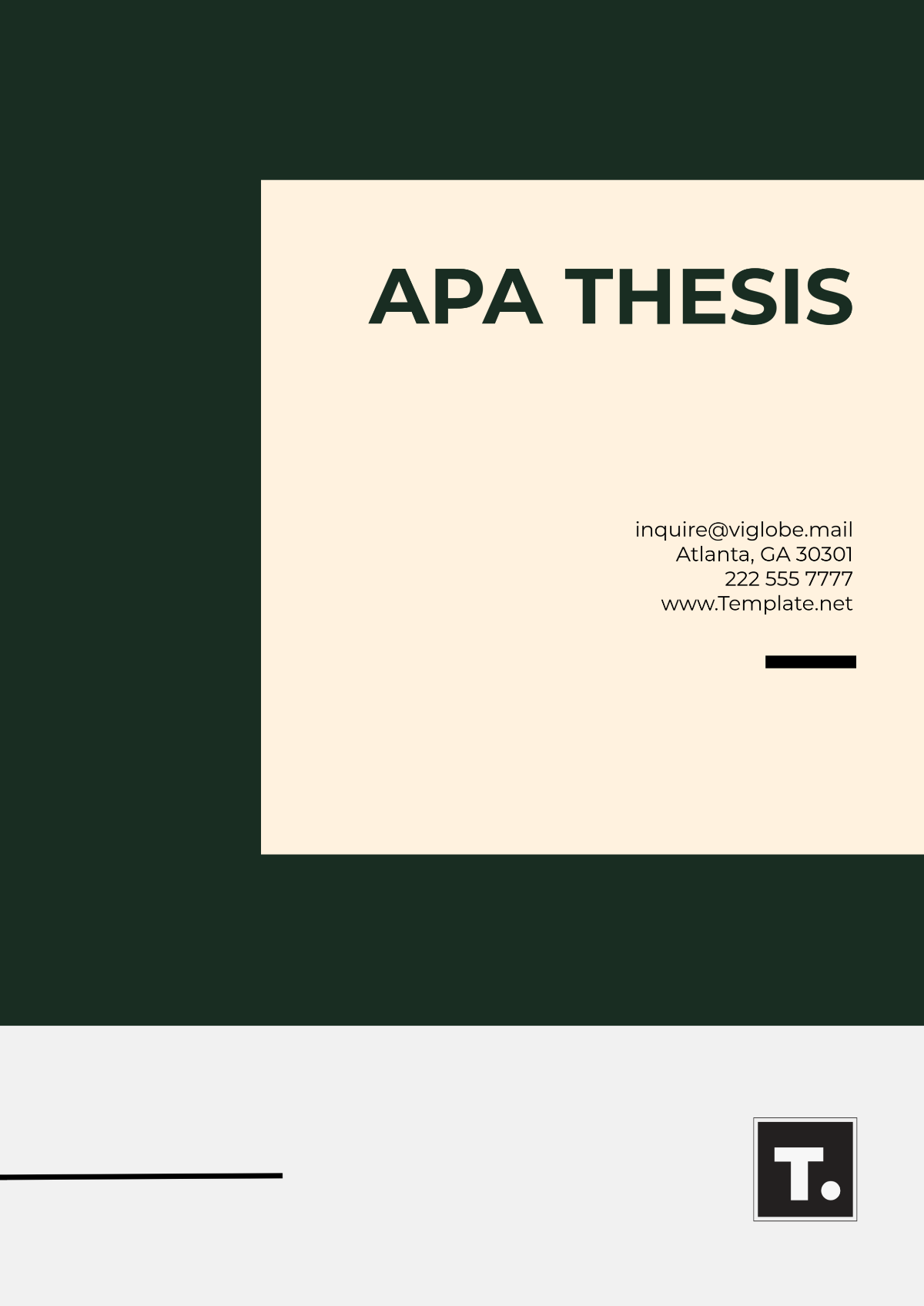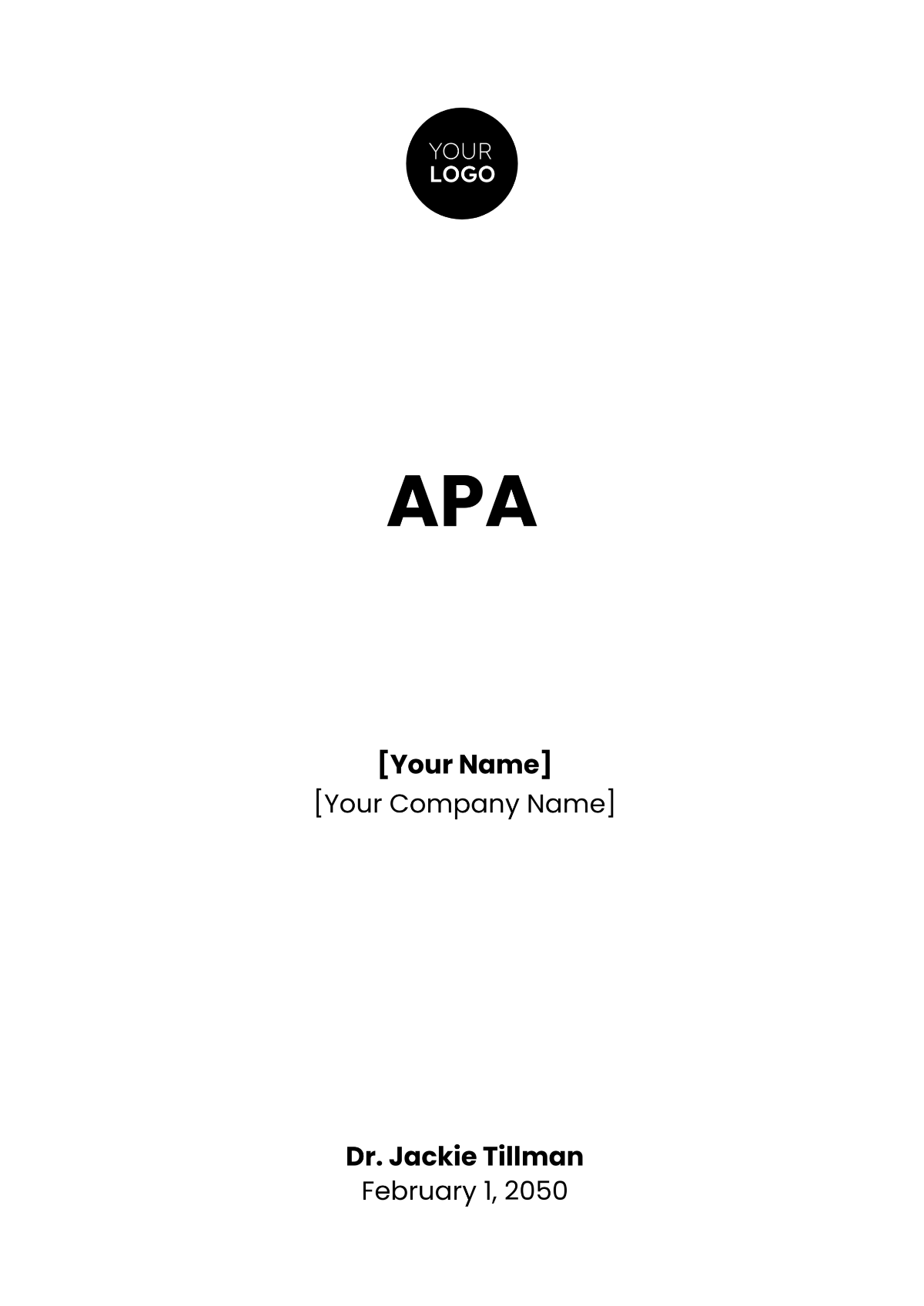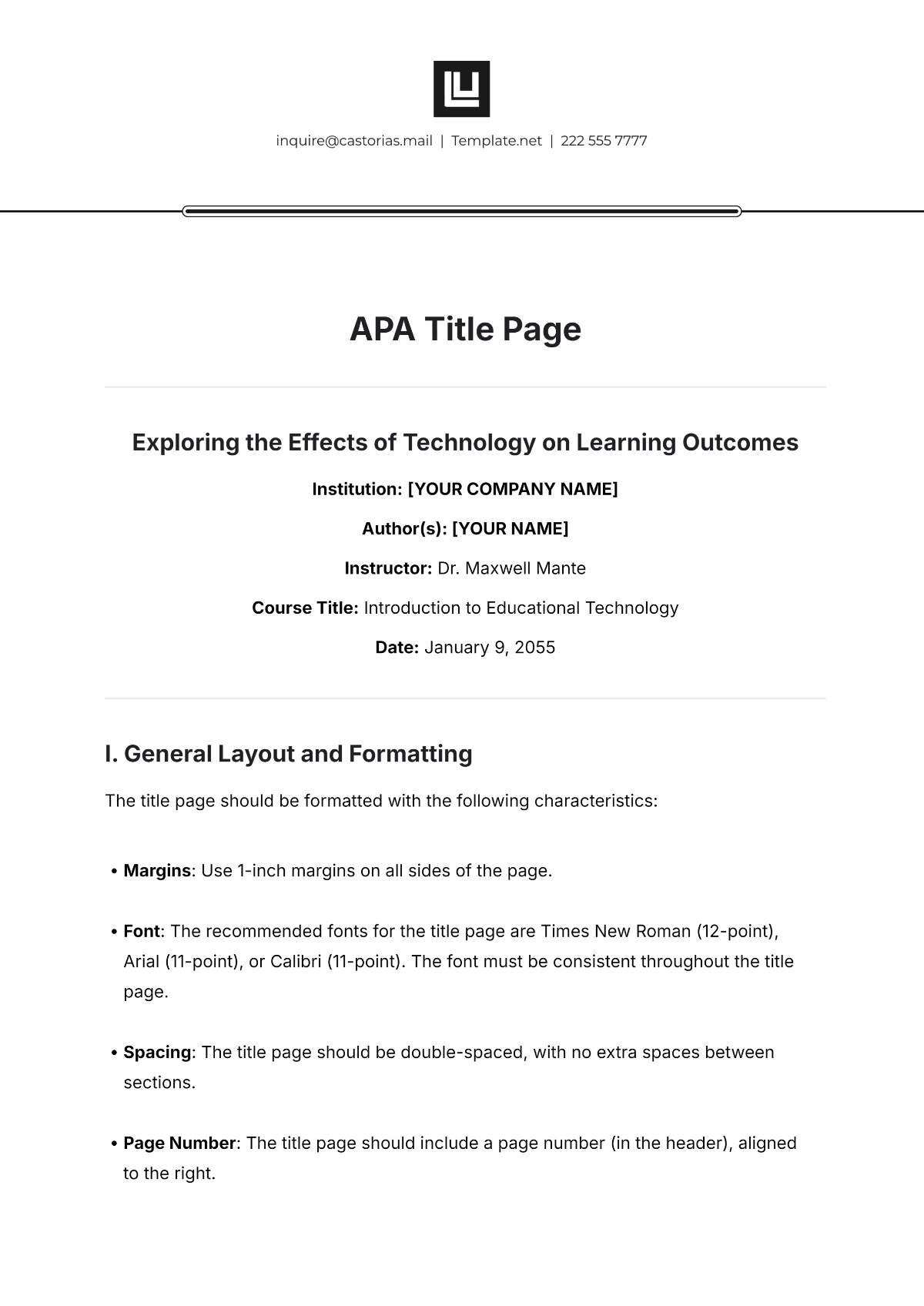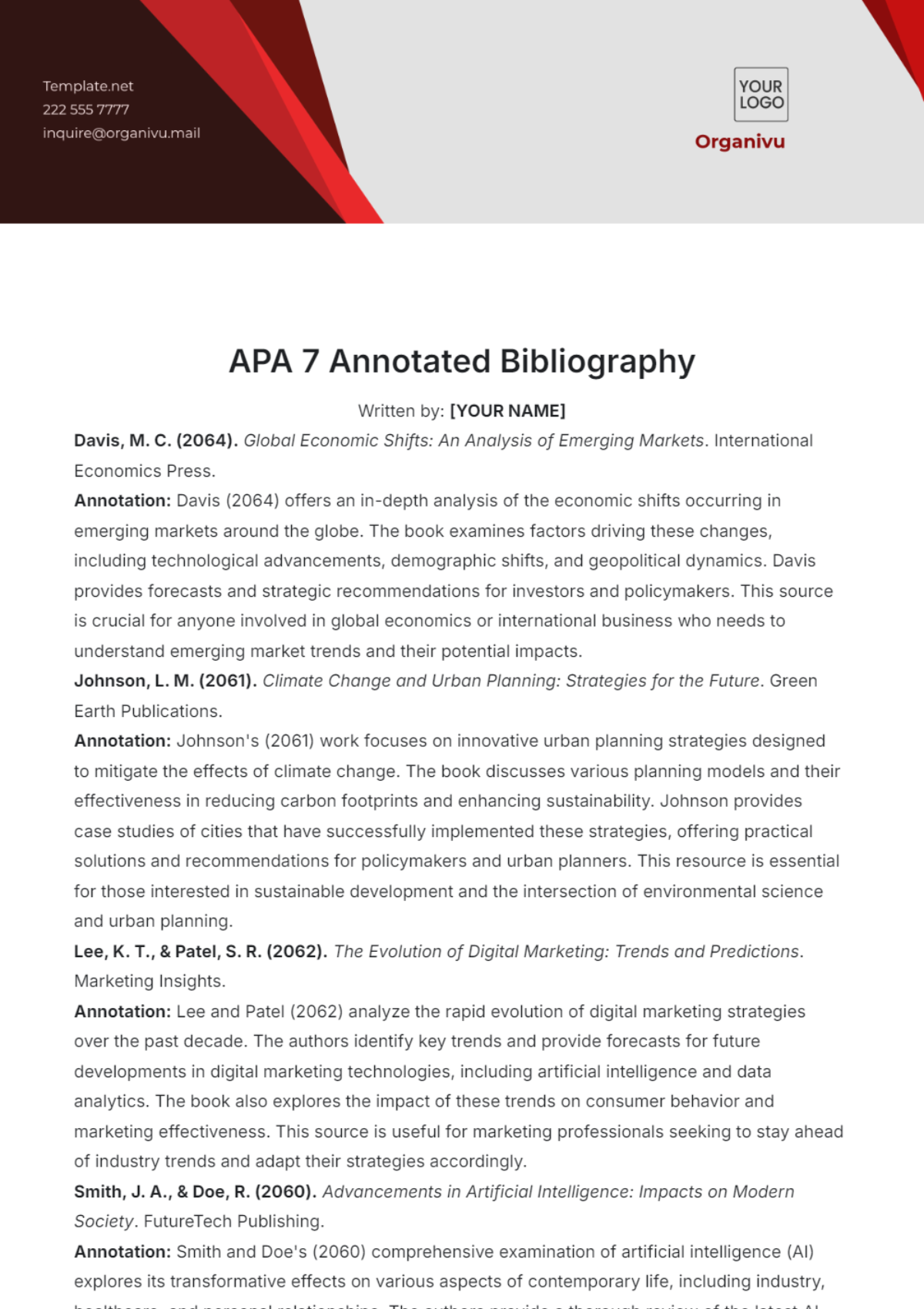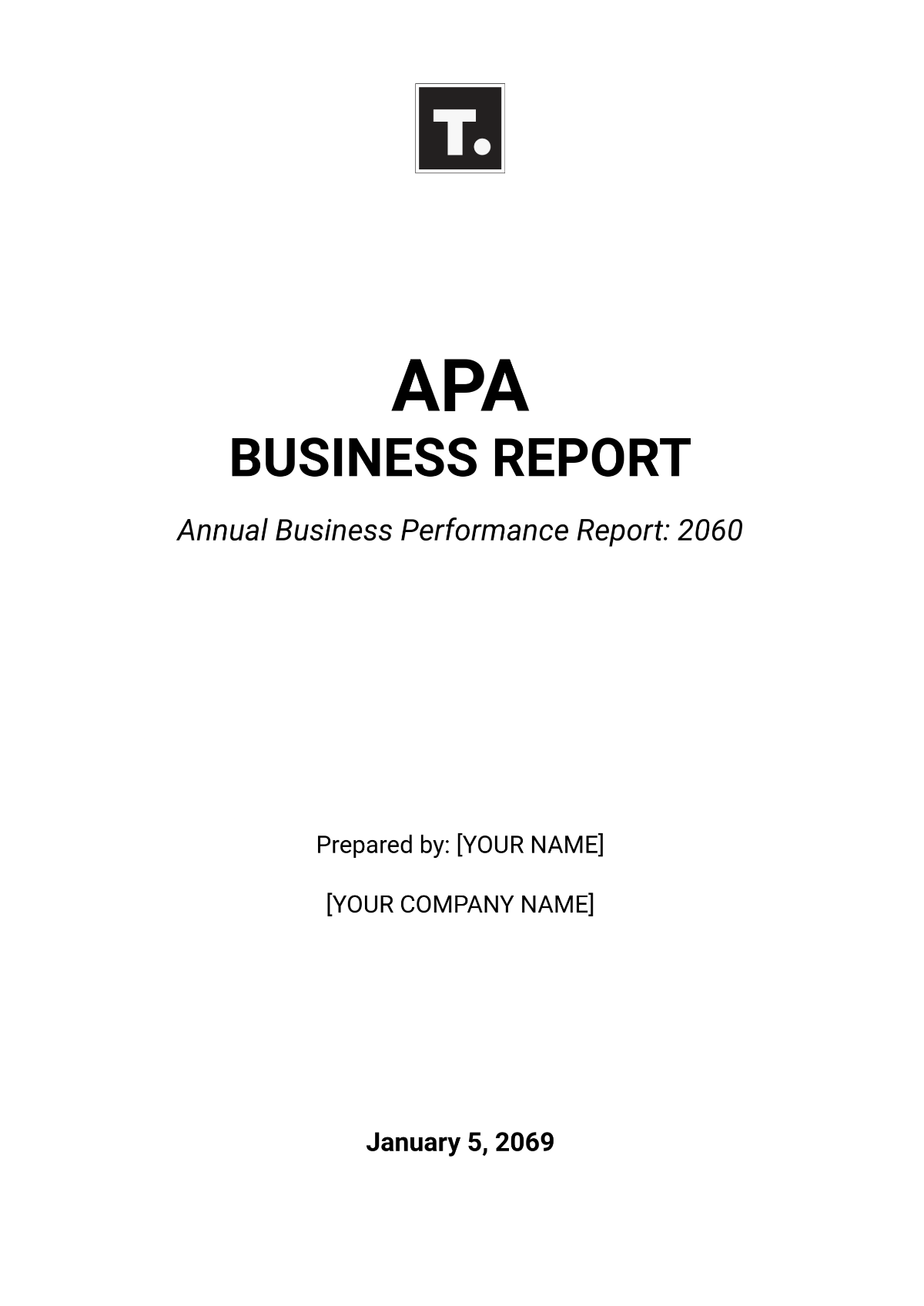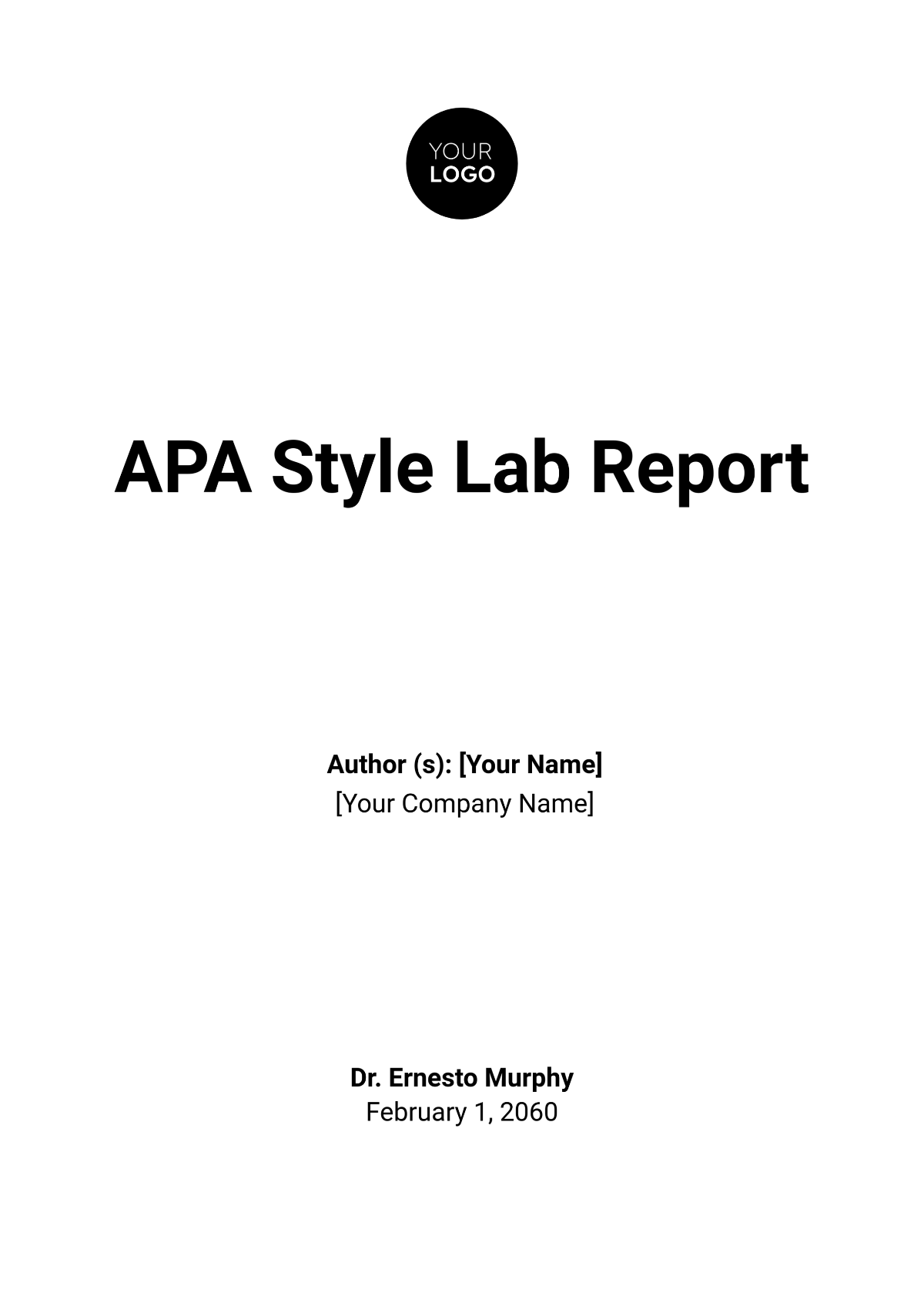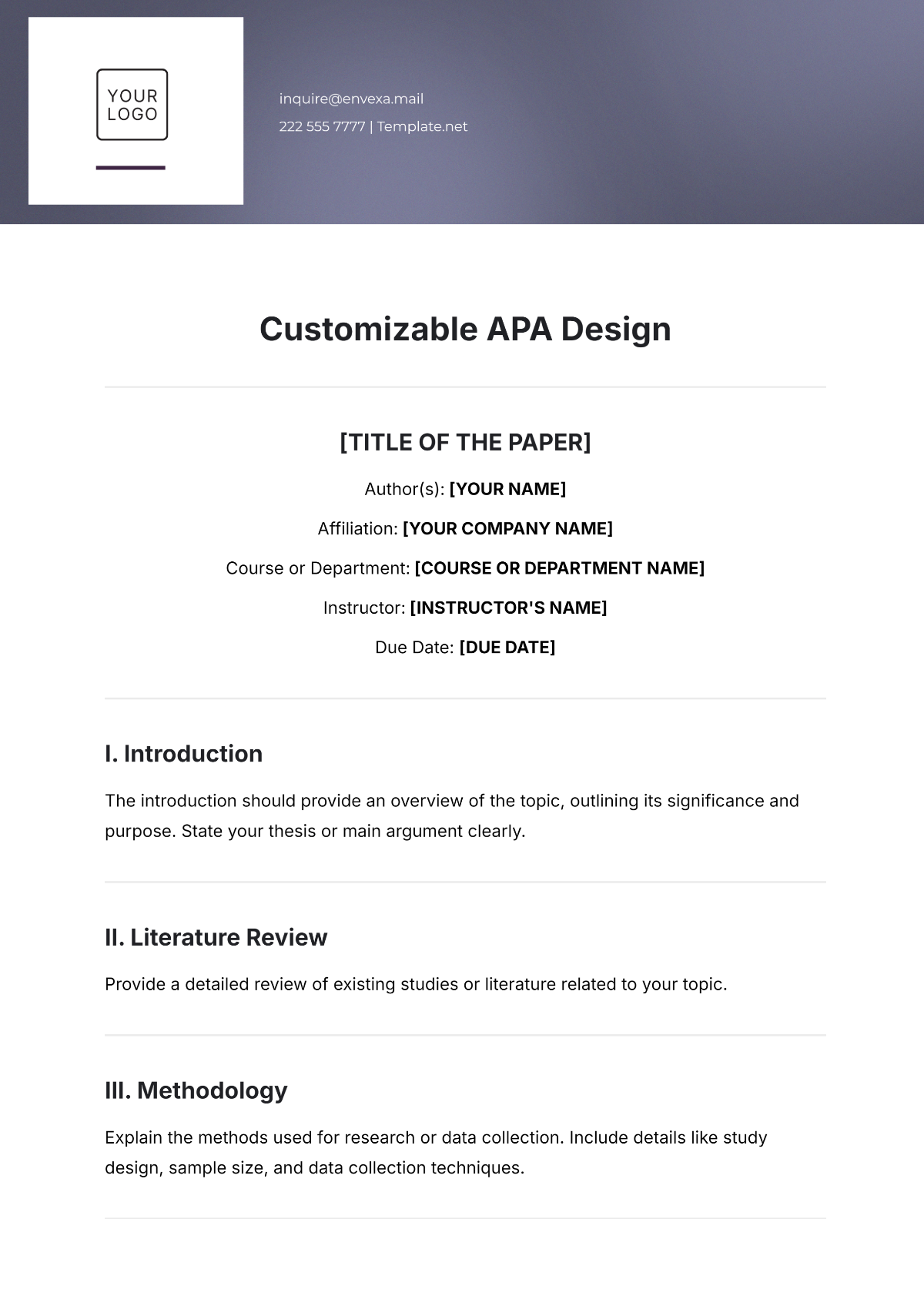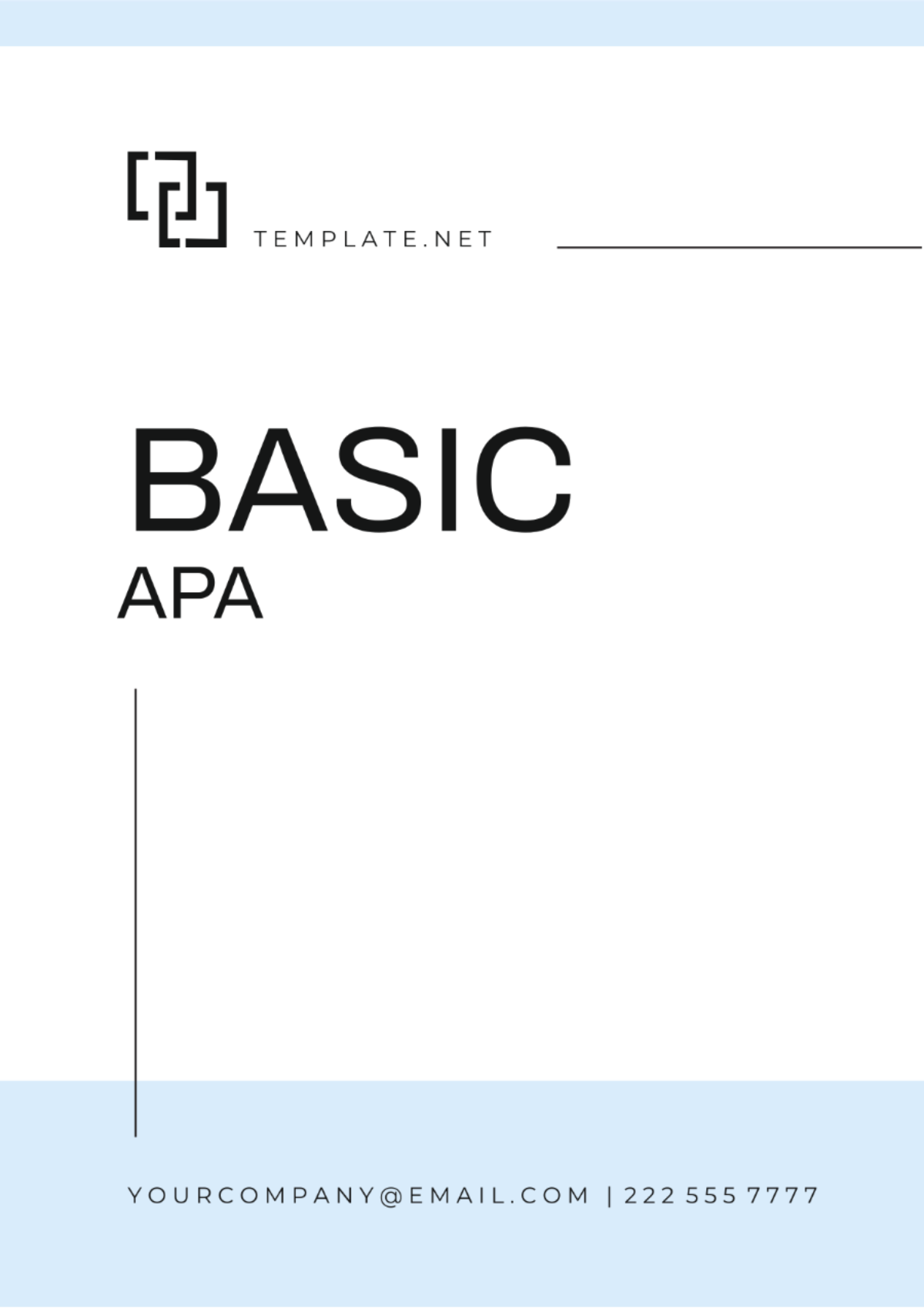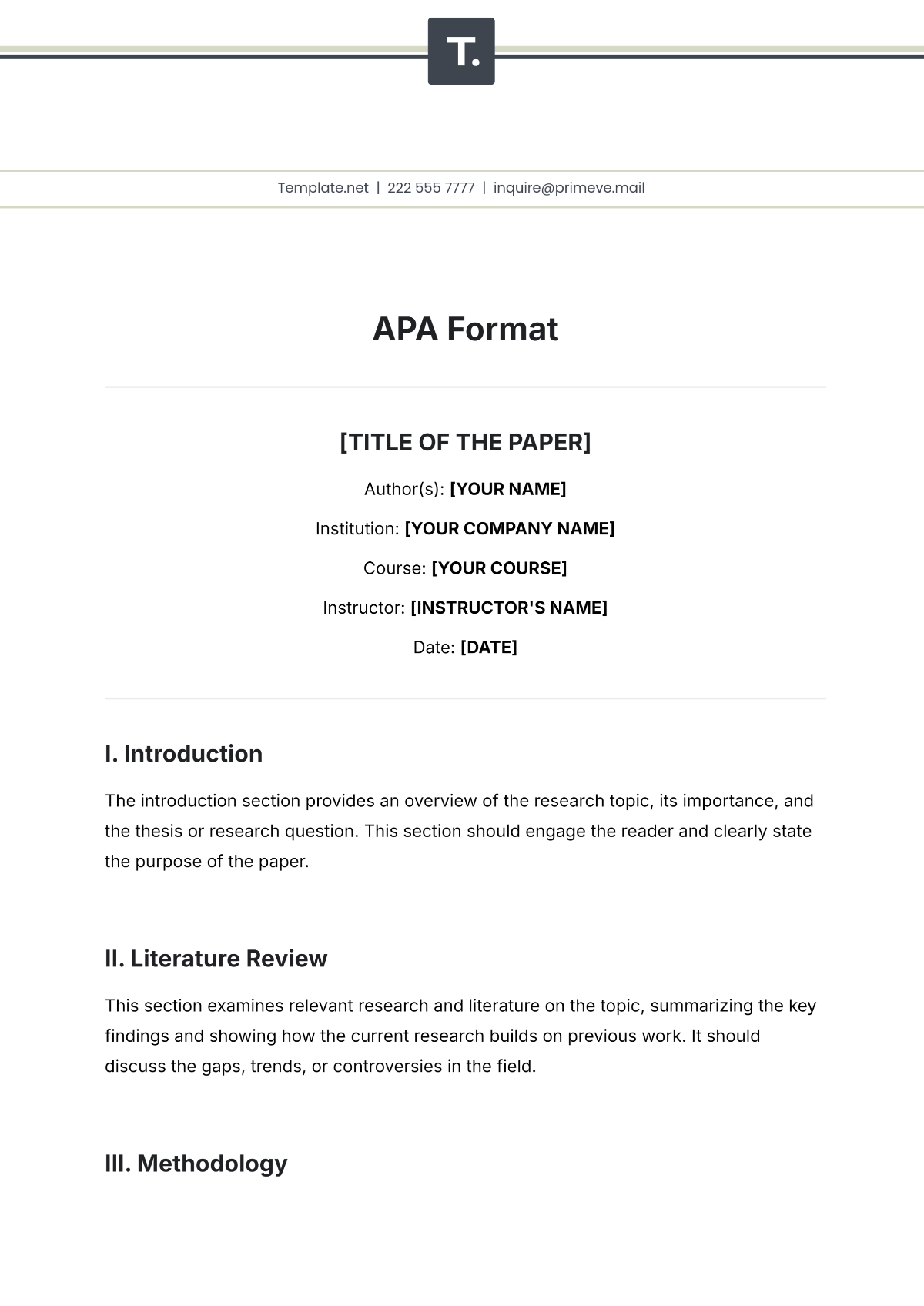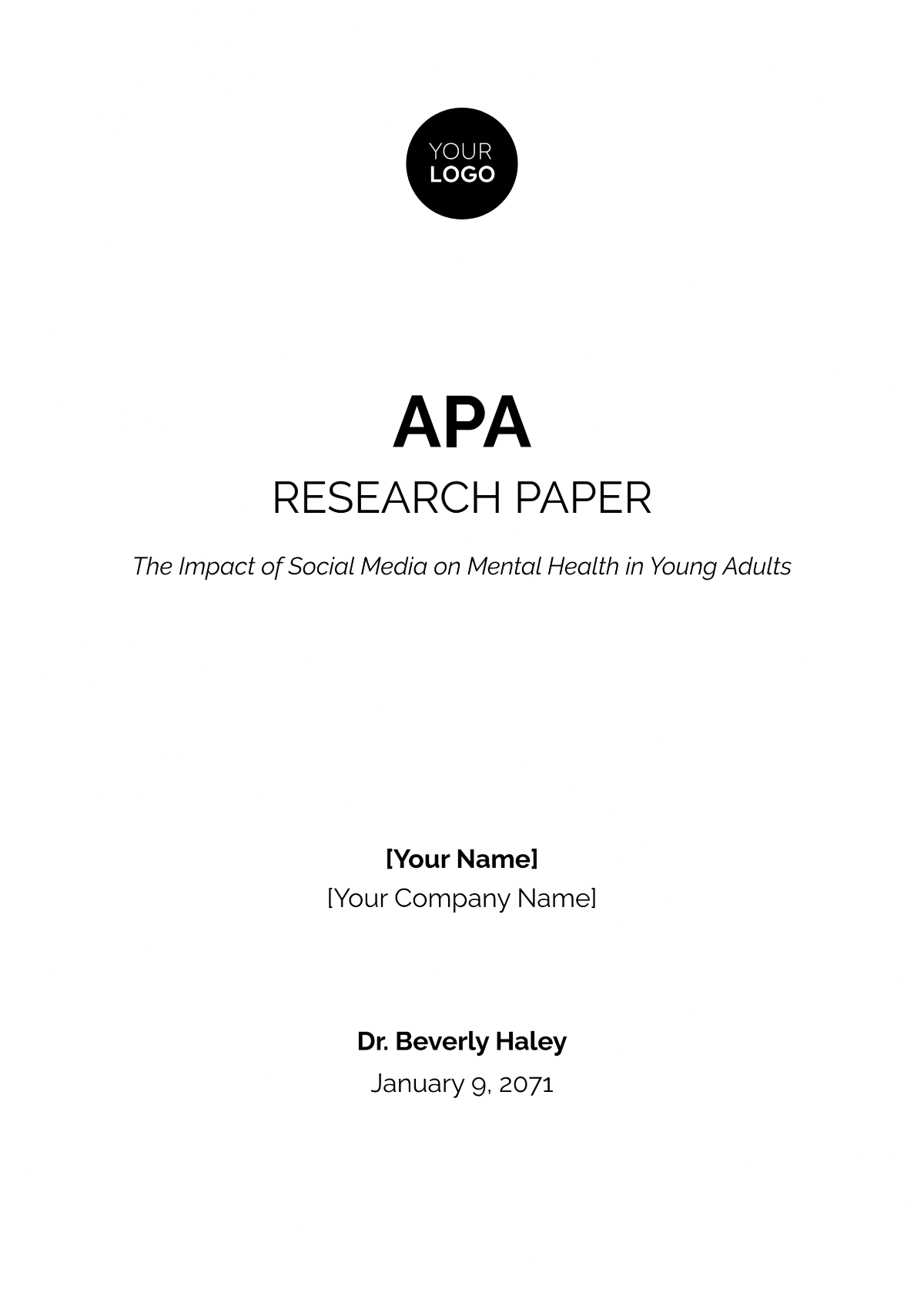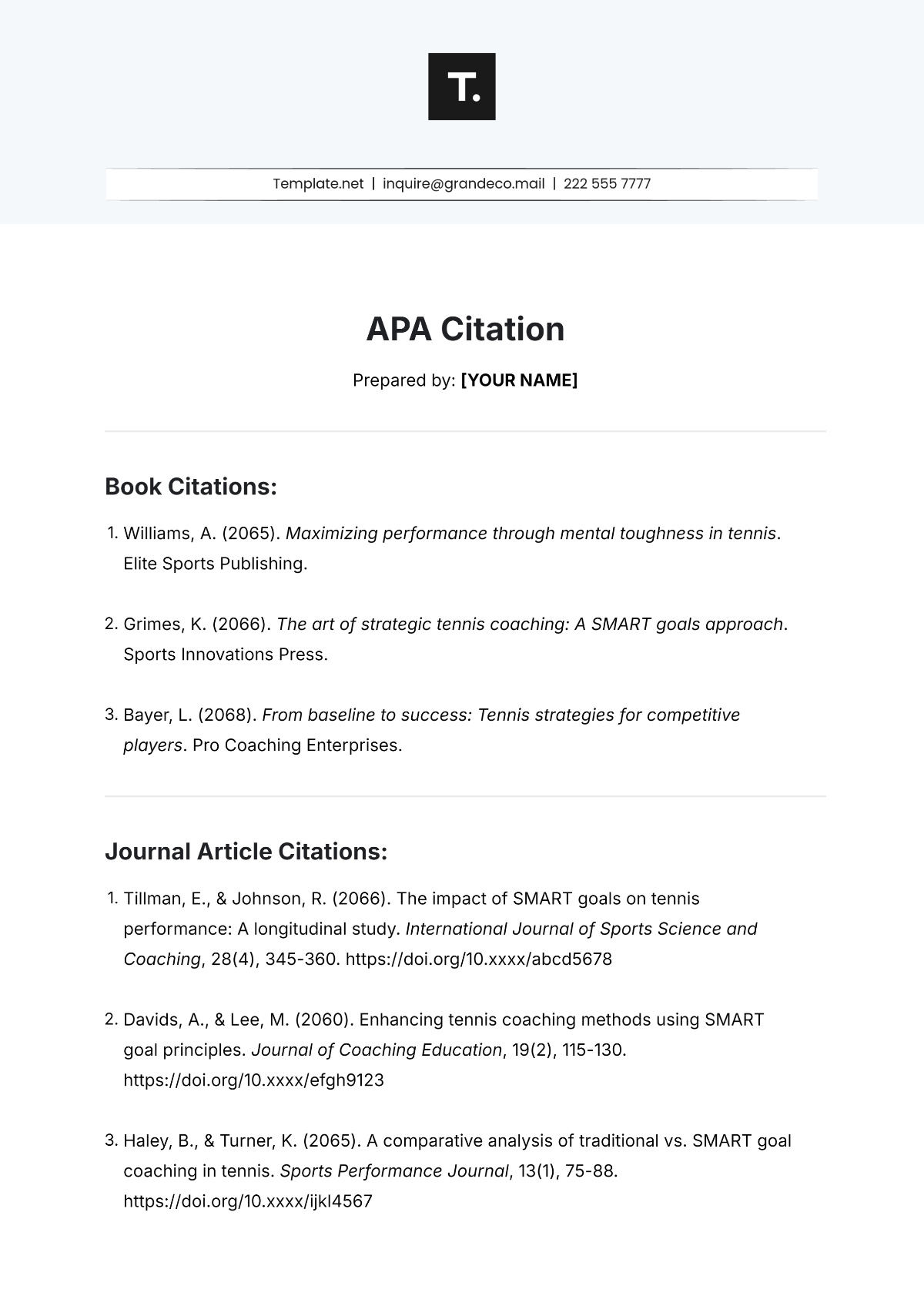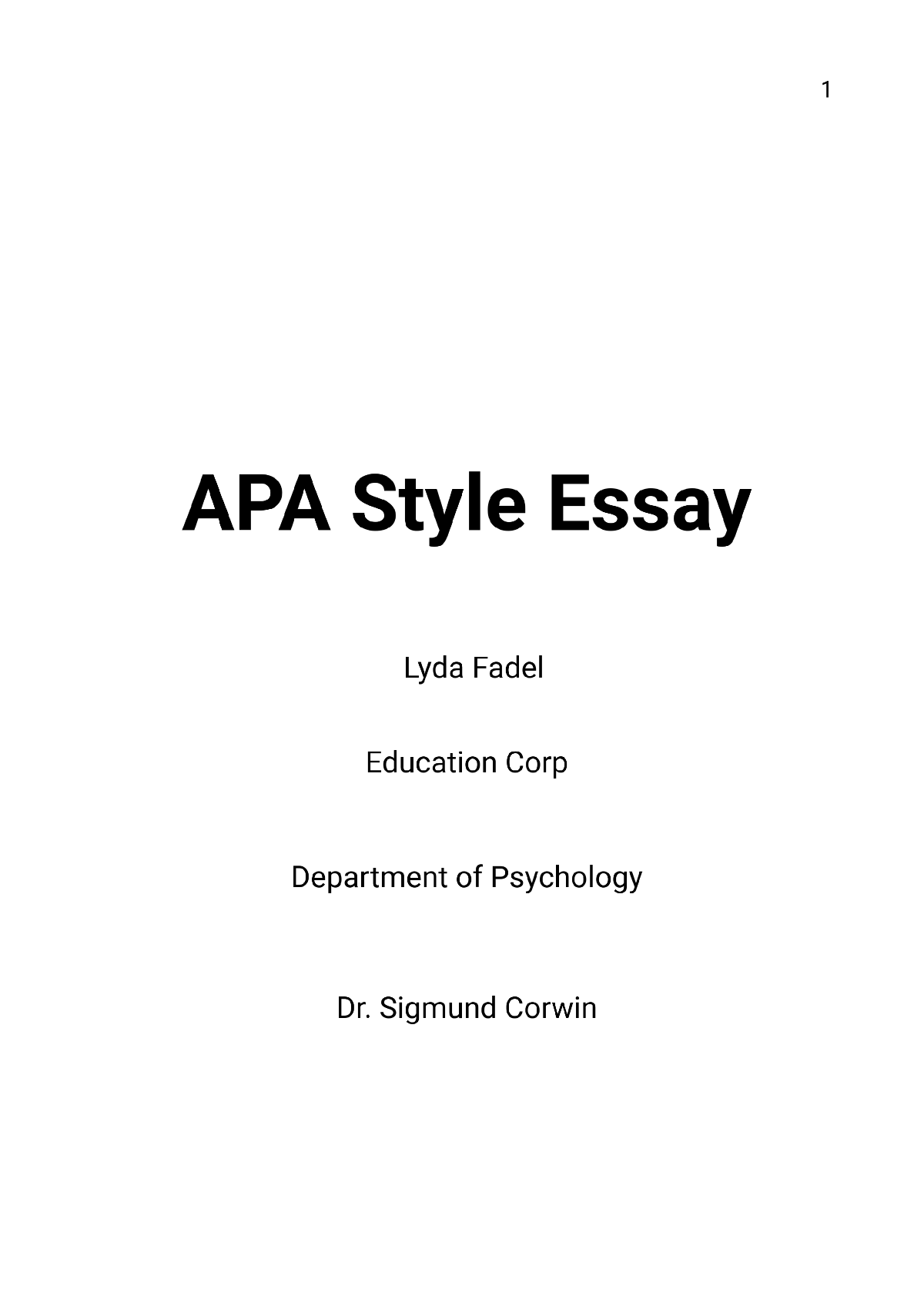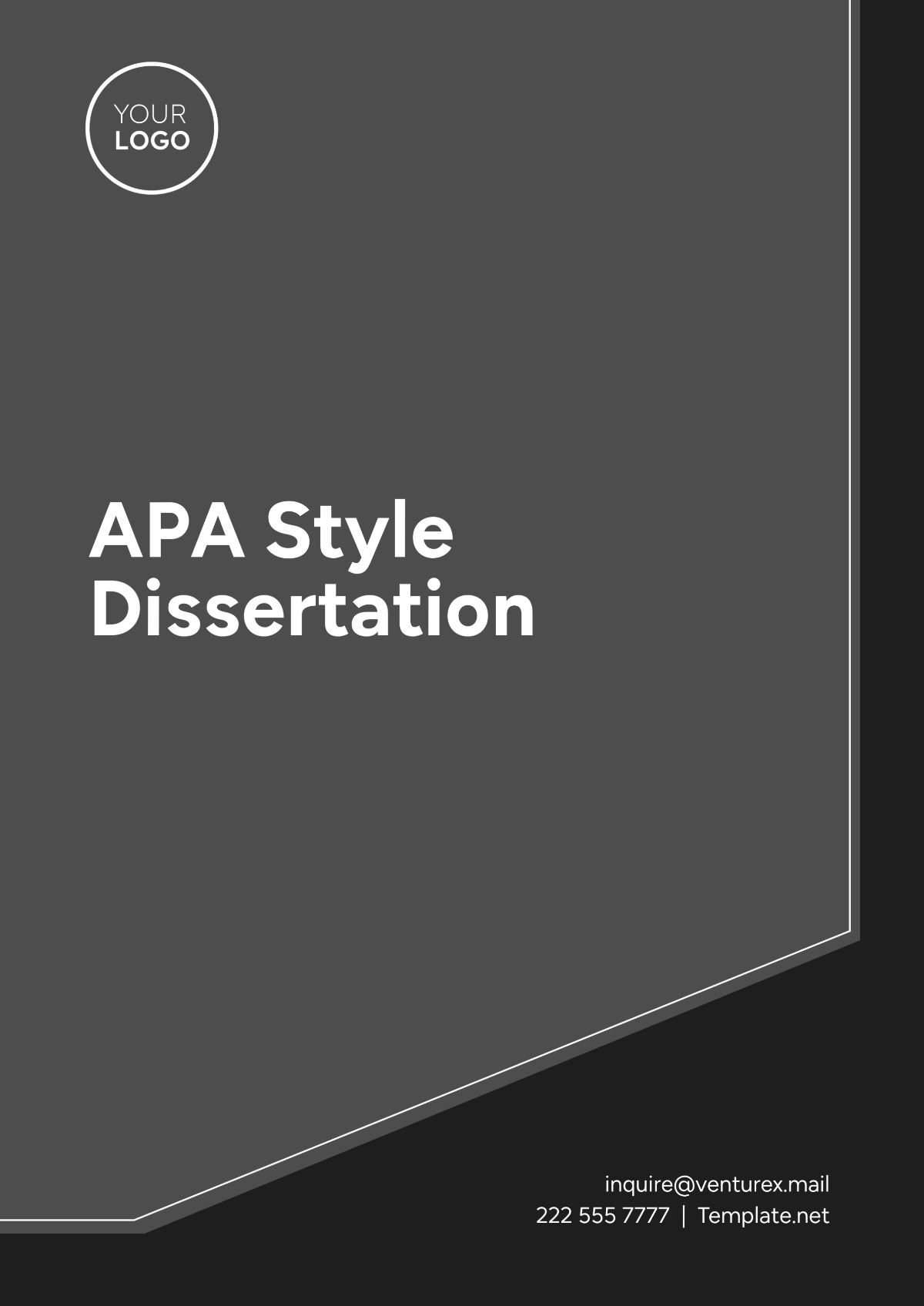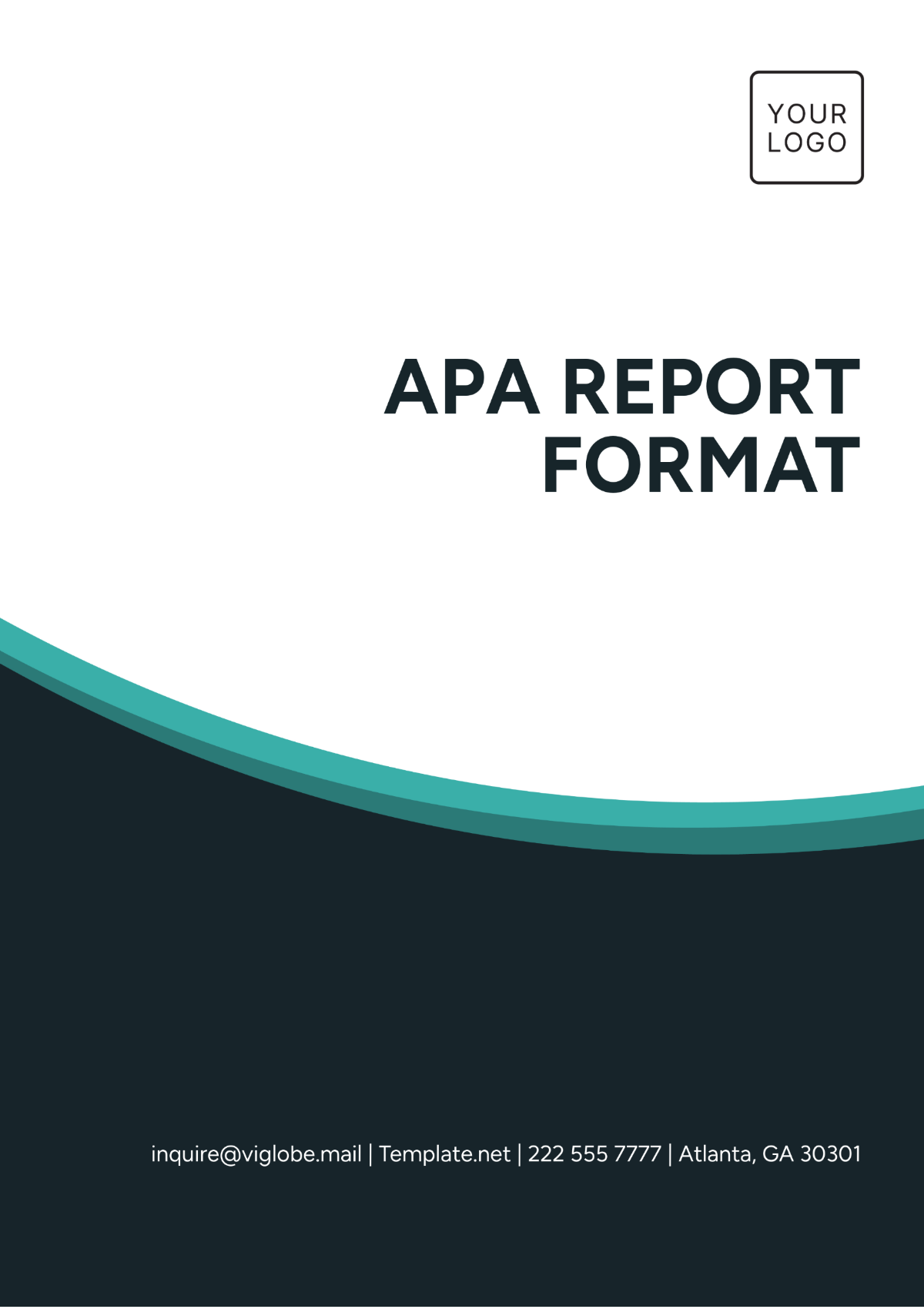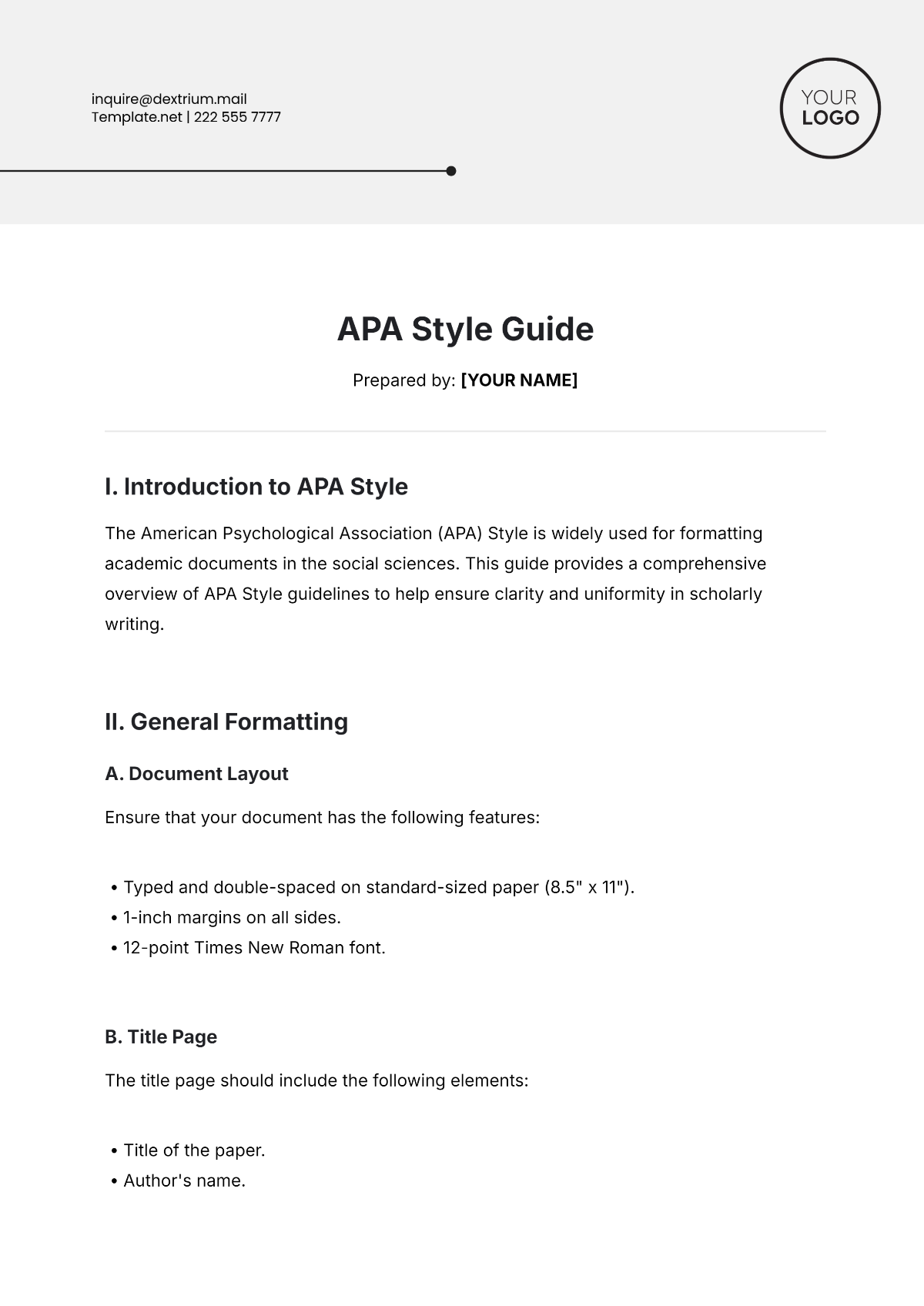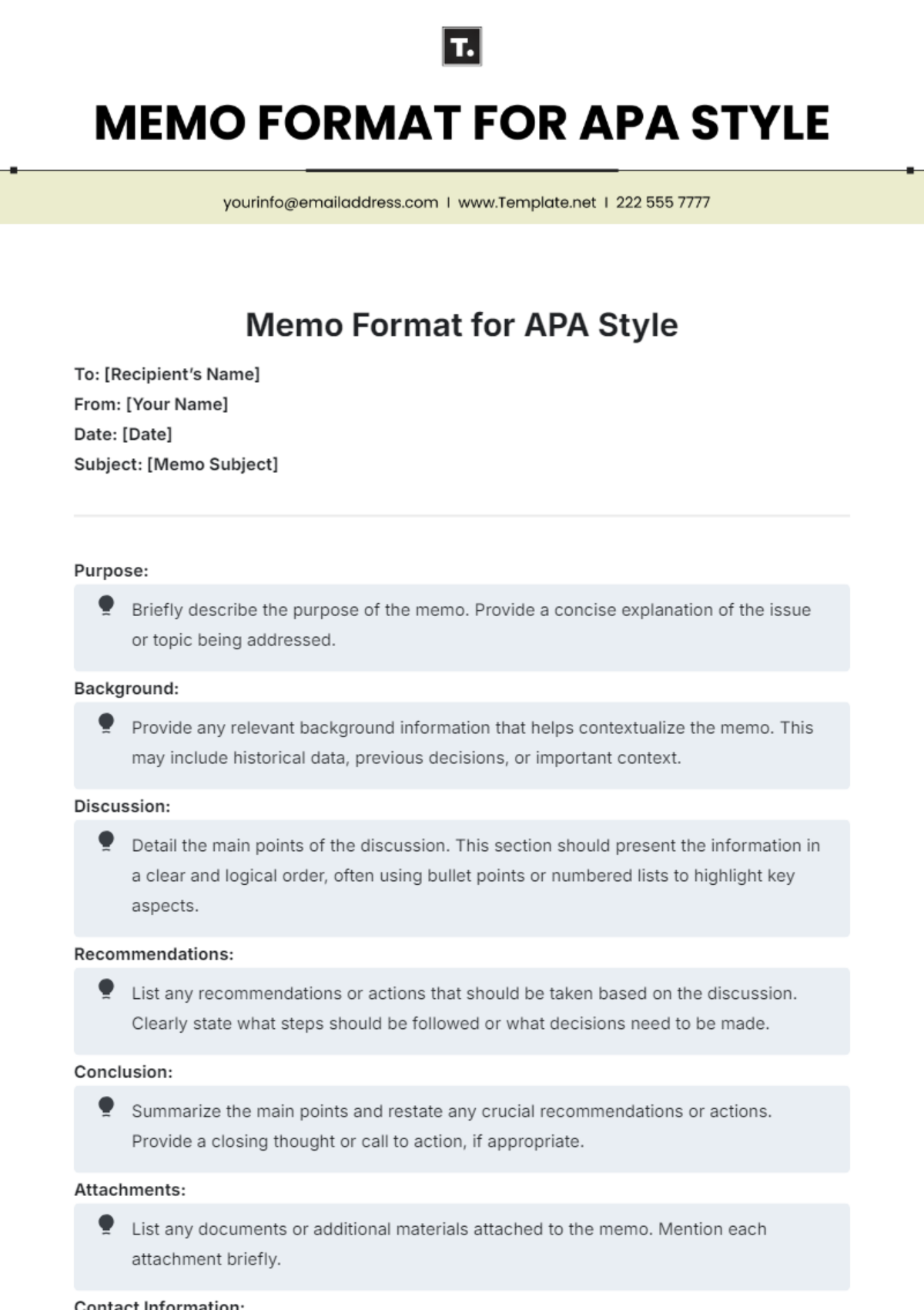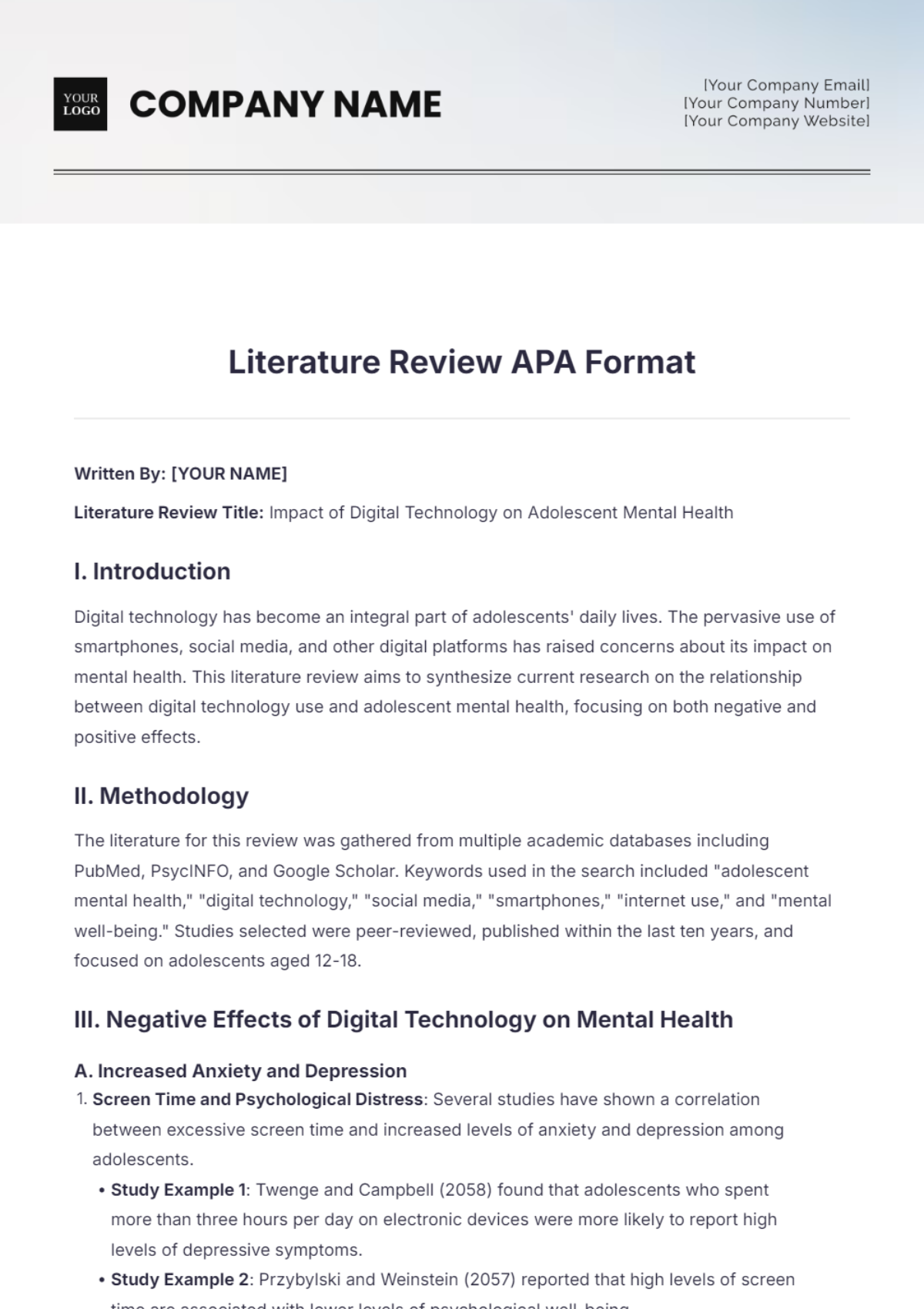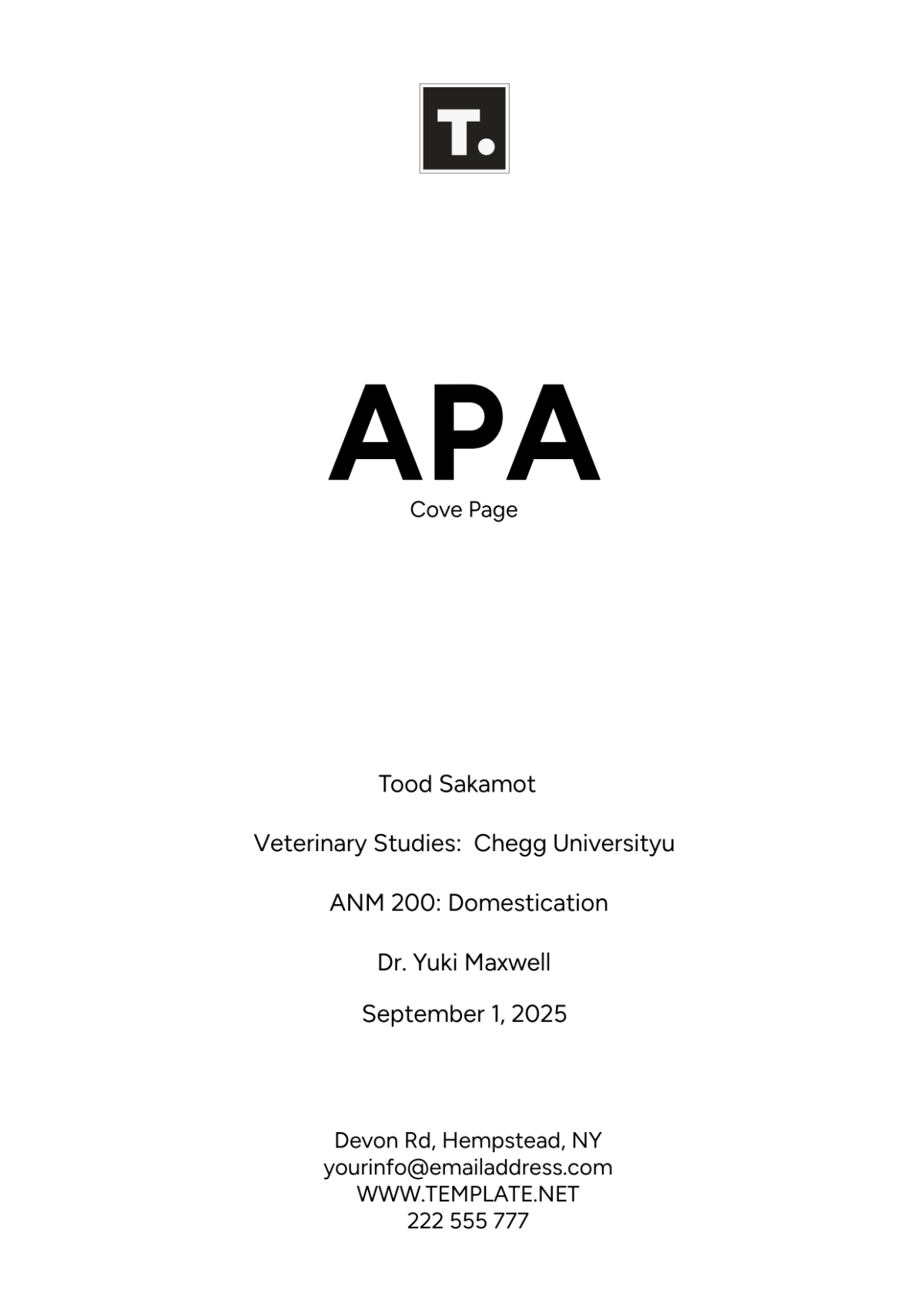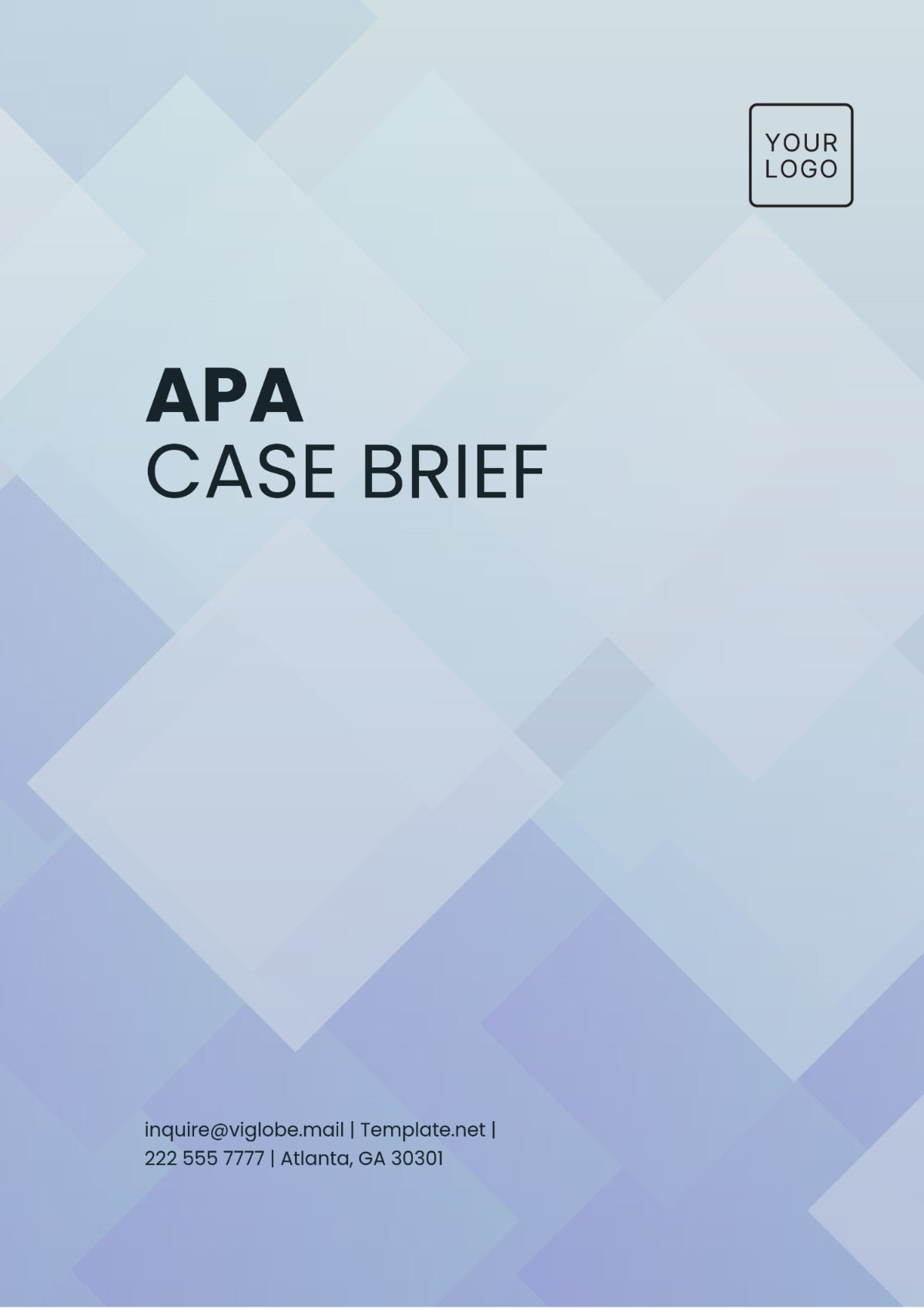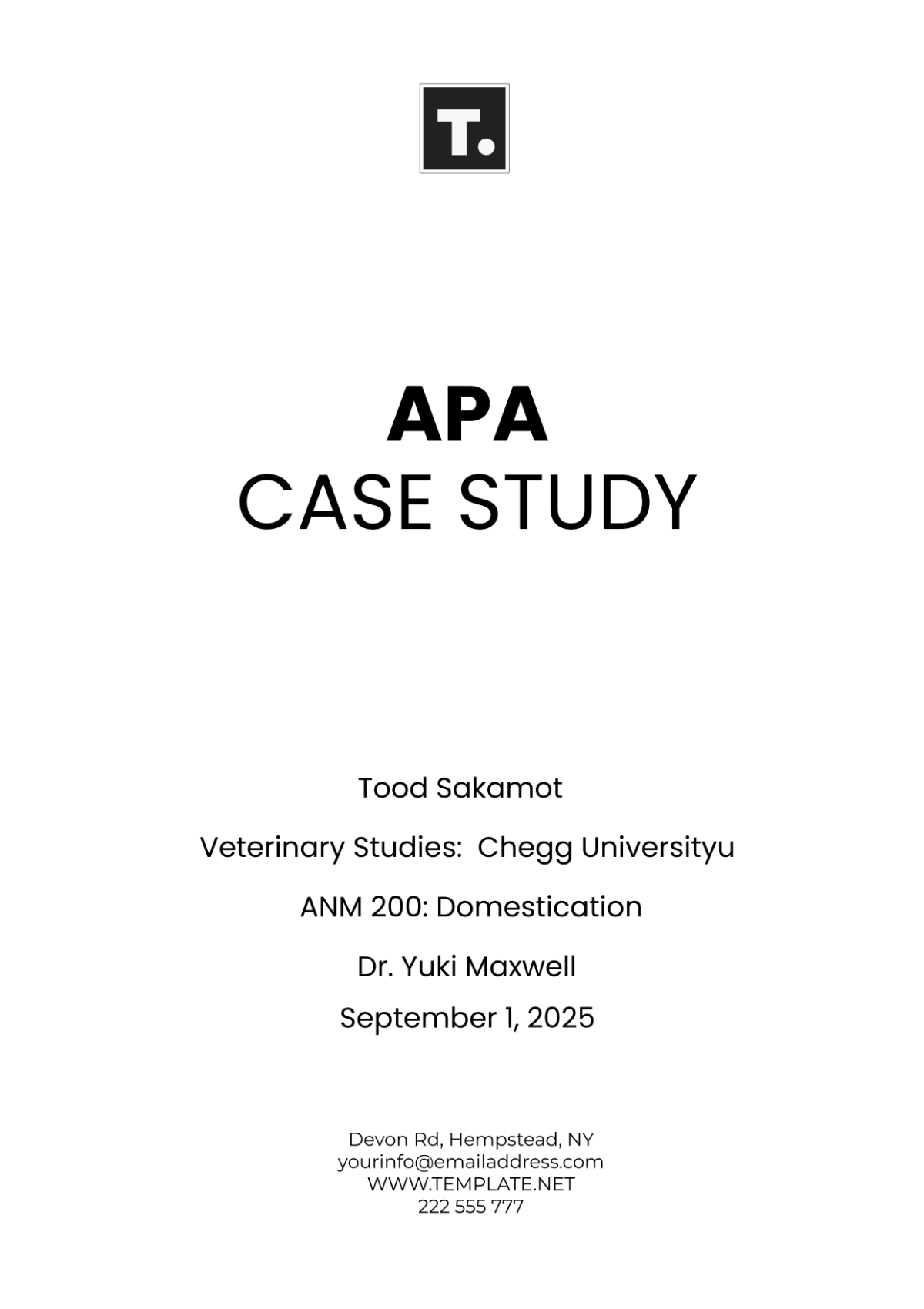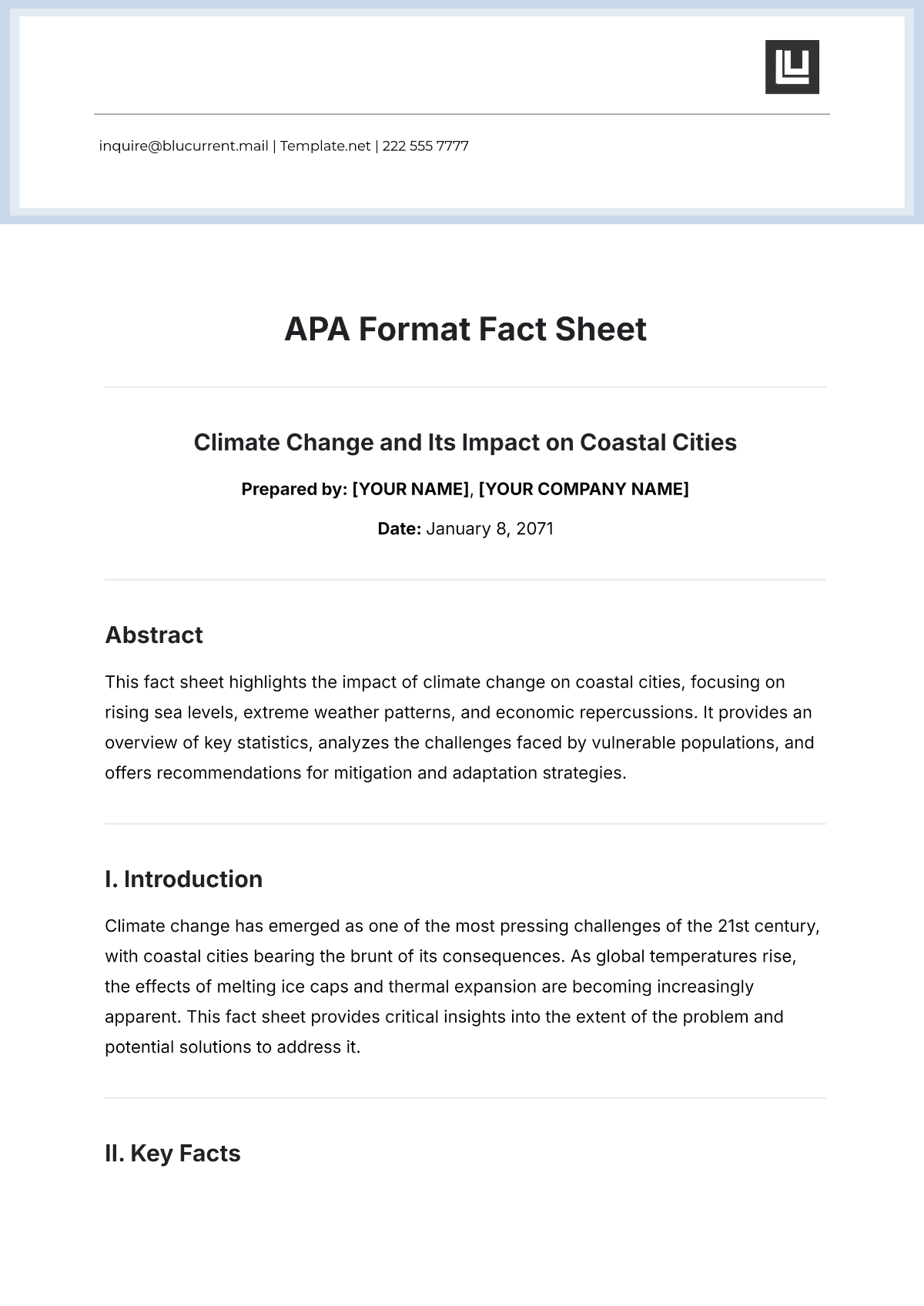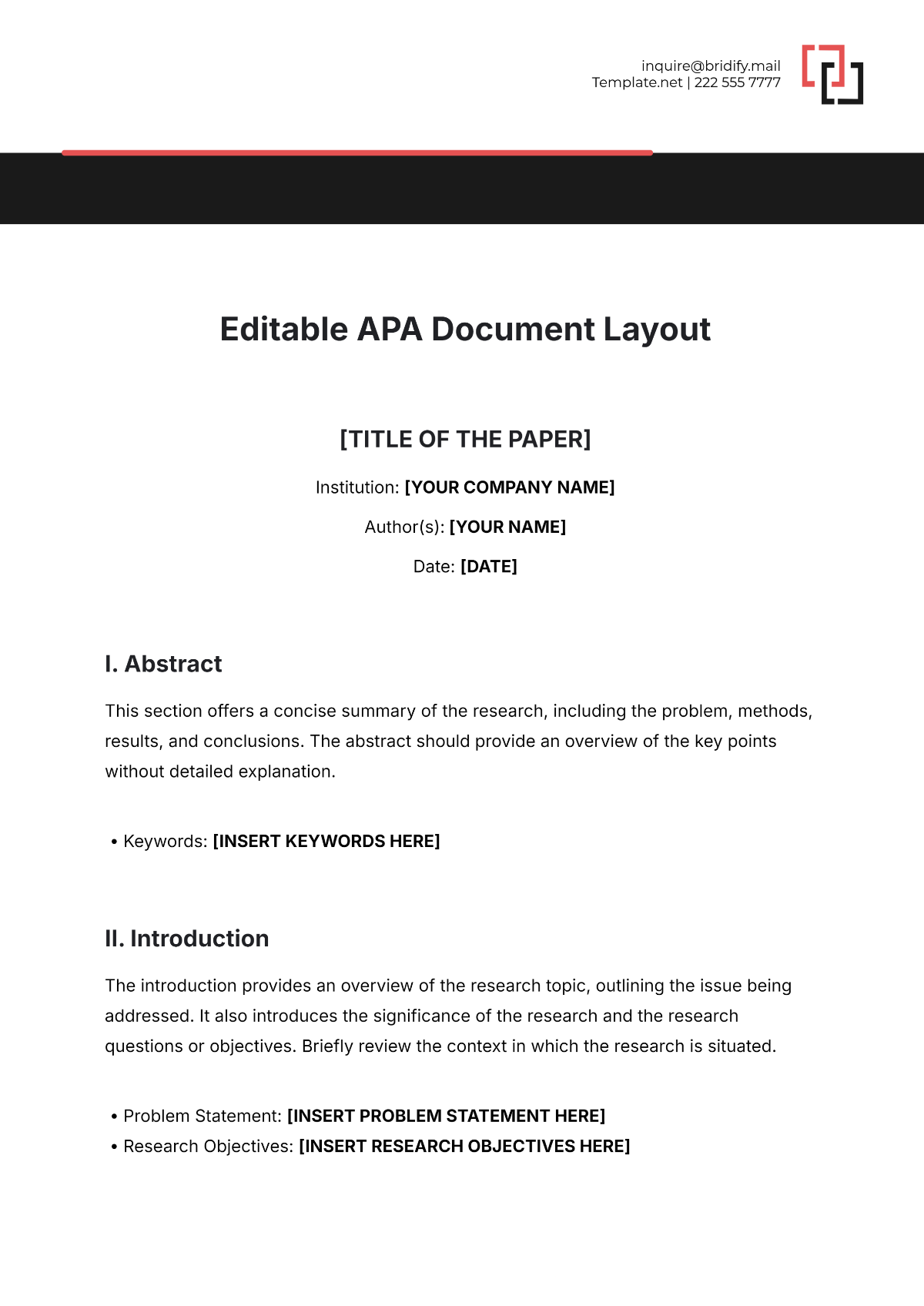APA Style Guide
Prepared by: [YOUR NAME]
I. Introduction to APA Style
The American Psychological Association (APA) Style is widely used for formatting academic documents in the social sciences. This guide provides a comprehensive overview of APA Style guidelines to help ensure clarity and uniformity in scholarly writing.
II. General Formatting
A. Document Layout
Ensure that your document has the following features:
Typed and double-spaced on standard-sized paper (8.5" x 11").
1-inch margins on all sides.
12-point Times New Roman font.
B. Title Page
The title page should include the following elements:
Title of the paper.
Author's name.
Institutional affiliation.
III. Citing Sources
A. In-text Citations
APA Style uses the author-date method of in-text citation. This format includes the author's last name and the year of publication.
Example: (Smith, 2050)
B. Reference List
The reference list at the end of the document should include all sources cited in the paper. Here are the general rules:
Start on a new page with the title "References" centered at the top.
Entries should be alphabetized by the last name of the first author.
Use a hanging indent for each reference entry.
Source Type | Format | Example |
|---|---|---|
Book | Author, A. A. (Year). Title of work. Publisher. | Smith, J. (2050). Research methods. Academic Press. |
Journal Article | Author, A. A. (Year). Title of article. Title of Journal, volume number(issue number), pages. | Doe, J. (2050). Effective study habits. Journal of Education, 15(2), 123-134. |
IV. Writing Style
A. Language
Use clear and concise language, avoiding biased or offensive language. Aim for an objective tone and avoid personal opinions.
B. Punctuation
APA Style has specific punctuation guidelines:
Use one space after a period at the end of a sentence.
Use commas to separate items in a series.
Quotation marks should be used for short quotations.
V. Conclusion
Following APA Style guidelines helps present your research in a professional and credible manner. Attention to detail in formatting, citing, and writing style not only enhances the readability of your work but also supports its academic integrity.
